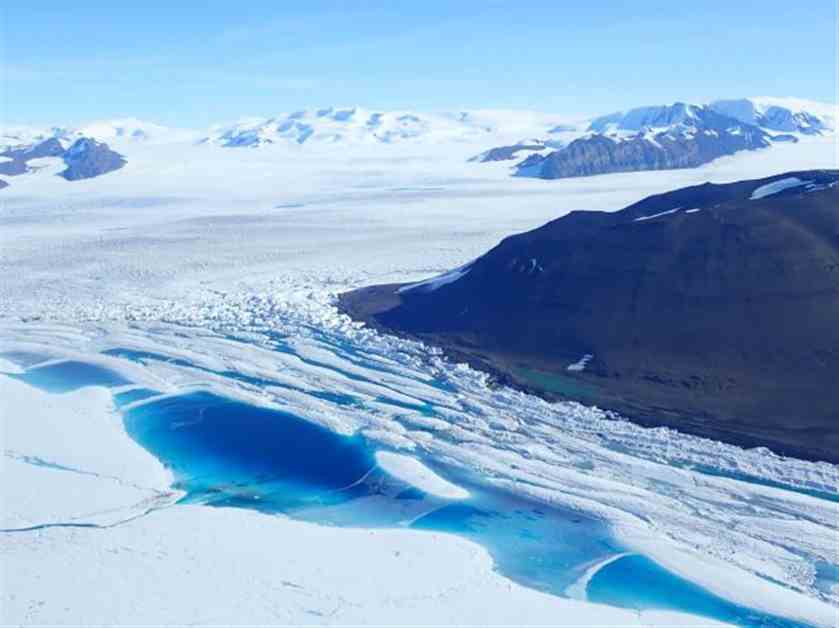Boulder scientists have discovered that Antarctic ice shelves are breaking under the pressure of the meltwater lakes that form on top of them. This new finding is important in understanding the impact of climate change on these delicate ice structures.
Alison Banwell, a researcher at the University of Colorado, led a study that revealed the connection between meltwater lakes and ice shelf fractures. She explained that when these lakes become full and then drain, they change the stress on the surrounding ice, potentially leading to the breakup of the glacier.
Banwell and her team visited the George VI Ice Shelf on the Antarctic Peninsula to study the effects of surface meltwater on the stability of the ice shelf. They found evidence of a depression left by a drained lake, indicating where meltwater was likely to collect again.
Despite facing challenges due to the COVID-19 pandemic, the researchers were able to collect valuable data on the movement of the ice surface and the formation and drainage of a meltwater lake. This information, published in the Journal of Glaciology, will help scientists predict which ice shelves are most at risk of collapse due to climate change in the future.
Banwell emphasized the importance of field data in improving models that simulate the behavior of the Antarctic ice sheet in response to climate change. By studying real-world events like the formation and drainage of meltwater lakes, researchers hope to enhance their understanding of the potential impact of climate change on Antarctic ice shelves.
The study conducted by Banwell and her team sheds light on the complex relationship between meltwater lakes and ice shelf stability. As the effects of climate change continue to impact the Antarctic region, further research and data collection will be crucial in preparing for the future challenges that lie ahead.

